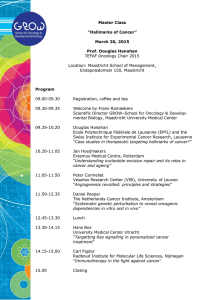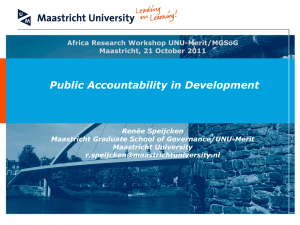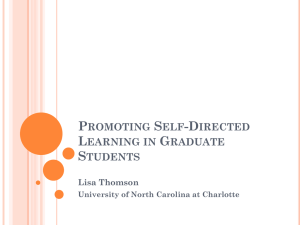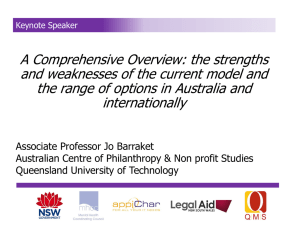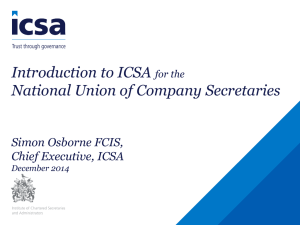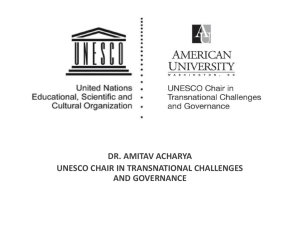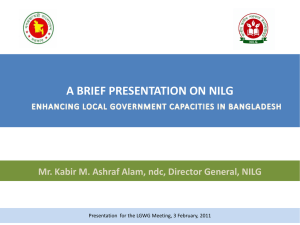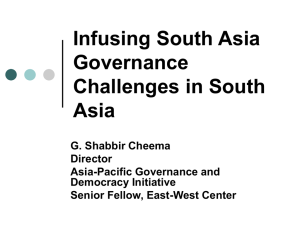Slides - Empower European Universities
advertisement
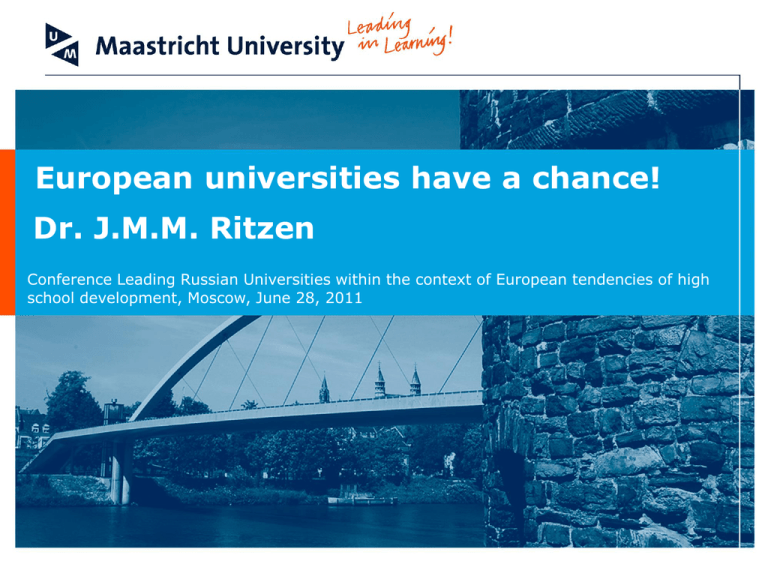
European universities have a chance! Dr. J.M.M. Ritzen Conference Leading Russian Universities within the context of European tendencies of high school development, Moscow, June 28, 2011 Challenge for Europe • Vibrant continent • Attractive for talent Requires vibrant universities which attract talent world wide Maastricht Graduate School of Governance Context of Europe • Slow economic growth (crisis) • Ageing and only 6% of world population in 2030 • Cohesion contested with strong linguistic barriers Maastricht Graduate School of Governance Context of Europe • Exemplified: growth Maastricht Graduate School of Governance European Universities Challenge • Contribute to growth • Contribute to demography (brain circulation) • Contribute to sustainability Maastricht Graduate School of Governance European Universities Performance The Public Eye • Too few peaks in the European university landscape, losing top talent to the rest of the world • Succesful enrolment of students from socially disadvantaged groups is too low • Overall drop-out rates are too high • University research contributes too little to innovation • University education is not sufficiently related to the demands of the labour market • Percentage of female full professors is often no more than 10 to 20% on average • The attention for efficient and effective learning of students is virtually absent and innovations in learning methods occur too rarely Maastricht Graduate School of Governance European universities Performance International Ranking • Underrepresented in top 50 (UK as exception) • As a whole underrepresented in top 200, with exceptions: UK, Netherlands, Switserland, Norway, Sweden, Denmark, Finland limited attraction for non EU-students brain drain to US Maastricht Graduate School of Governance Performance: European universities are national while we need globalized leadership • Globalized leadership: the ability to function effectively on the international labour market in advanced positions where strategic decisions are taken in the private and in the public sector. • Universities are not providing the basis for a strong and viable Europe, in a cultural, social and economic sense. • Nationalness of university systems versus internationalisation efforts of European universities and globalised labour market of its alumni • National markets less competition less innovation less excellence. Maastricht Graduate School of Governance Demography: the graduate supply-demand gap Maastricht Graduate School of Governance Brain circulation as a solution • Attract foreign talent • European track record: reasonable (22% of all foreign students, exclusive at internal EU migration) Maastricht Graduate School of Governance A European HE space • To create European citizen • International leadership • Intra European mobility of 20% (?) Maastricht Graduate School of Governance HE space implies • Same legislation • Same finance • Same accreditation • Same quality control Erasmus Bologna Erasmus Mundus o European Statute? o EU compensation for net inflow of foreign EU students? P.S. Bologna hijacked by nation states Maastricht Graduate School of Governance Some observations on funding • EU University education is seriously underfunded • From ’75-’05 expenditure per student halved • Limited compensation via tuition fees or private funding • No tradition of philanthropy. In US 0.5 trillion USD. • US spend 2.6 times more per student Recall: there is a simple direct relationship between money and performance Maastricht Graduate School of Governance Finance Maastricht Graduate School of Governance Europe needs to take its tuition fee phobia to the therapist and start practising tuition fee policies and social loan systems. Maastricht Graduate School of Governance Governance Maastricht Graduate School of Governance “Time has come for creating a differentiated world class system of higher education within the context of the European Higher Education and Research Area.” (Manifesto Empower European Universities) Four ingredients: - Autonomy - Diversity - Internationalization - Funding Maastricht Graduate School of Governance A difficult political process • Distance between the informed opinion of experts and the instinctive feelings of society • Politics worked alone for decades: now we need involvement of stakeholders • The Bologna process fell into the trap of nationalness • No political movements, NGOs or pressure groups to advance the notion of bringing education under the wings of the European Union • EEU: Bringing stakeholders on board Maastricht Graduate School of Governance The garden of Europe: Diverse, international, empowered and thoughtfully nourished universities in an open space Maastricht Graduate School of Governance
